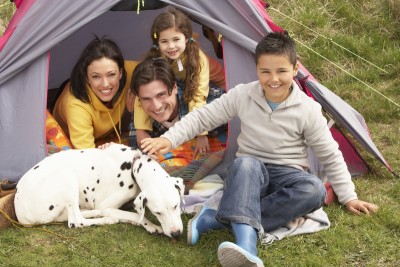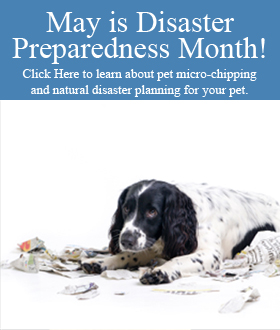 Article by:
Article by:
Anna Harp, DVM.
With daily summer thunderstorms and the Fourth of July approaching, loud noises and bright lights can be traumatic for pets. As we look forward to vacations and hanging out with friends and family, our fuzzy family members may not be as excited. Loud noises such as fireworks or thunder can startle and distress many pets, especially because of their sensitive hearing. While we are oohing and aahing over beautiful firework displays, they will spend the holiday under the bed or in the closet; cowering, shaking, drooling and seeking safety and comfort. Scared pets have been known to jump out of windows, leap over or dig under fences and bolt out of doors. Here are some helpful tips to keep your pet safe this Fourth of July.
Keeping your pet safe this Fourth of July:
Keep pets home.
It may be tempting to bring your pets along so everyone can enjoy the fun, but the loud noises usually aren’t fun for pets. Beyond the noise, there are many other hazards such as fire, food, and getting lost.
Keep pets indoors.
If possible, it is advisable to close the curtains and turn on a TV, radio or noise machine to provide some distraction.
Provide pets with a safe hiding place.
Dogs and cats who are comfortable in crates, it may be a good place for them to ride out the noise, especially if the crate is put in a dark and quiet part of the house.
Keep pets contained.
If you must be outside with your pet, keep the pet on a leash or in a carrier at all times.
Make sure pets have clear identification.
Be sure your pet’s ID is current and securely attached to a collar or harness. Should your pet escape, this will epedite a hopeful reunion.
Have your pet microchipped.
Should your pet run away, unlike a tag, a microchip is a permanent identification. If your pet has a microchip, be sure that you information is up to date.
How to prevent and treat noise fear in pets:
Make it normal.
Expose your pet to recordings of thunderstorms or fireworks and play them at increasing volume and duration. Start the recordings at very low volume — recognizing how acute a pet’s hearing is — and give praise and treats. It’s a party! Watch your pet closely, and as long as they are responding without fear or anxiety, slowly increase. As the volume and duration are increased, encourage them so they have the expectation of something positive. Initially, play the recording for five minutes, eventually leaving it on during daily activities as “normal” background noise.
Calming techniques.
Some veterinarians may recommend the herbal product Rescue Remedy, while others can show you acupressure and massage techniques to keep pets more calm. Another popular product is ThunderShirt, a special vest for cats and dogs that is said to help aid behavioral and environmental anxiety.
Medications if necessary.
Of course, some pets are so disturbed by noise that veterinary-prescribed tranquilizers are needed to keep them calm. Remember to call well in advance of the holiday, and give the medications as recommended. Due to potential side effects, it is recommended to test out any new drug several days prior to the anxiety inducing event.
What to do if your pet becomes frightened:
Do not scold.
It doesn’t matter if the fears are “rational” or not. It should be noted that scolding a frightened animal is not effective and will only intensify the fears.
Do not encourage.
On the other hand, it would appear that comforting scared pets seems the right thing to do, but it’s not. Don’t reward fear. If you remain calm and don’t baby them, they’ll be closer to learning how to handle loud noises.
This Independence Day, while we enjoy our parades, picnics and fireworks, remember to plan a memorable day for your furry family members as well.
Have a safe and happy Independence Day!
With credit to Pet Columnist Gina Spadafori. Edited by Danielle Akenson





































